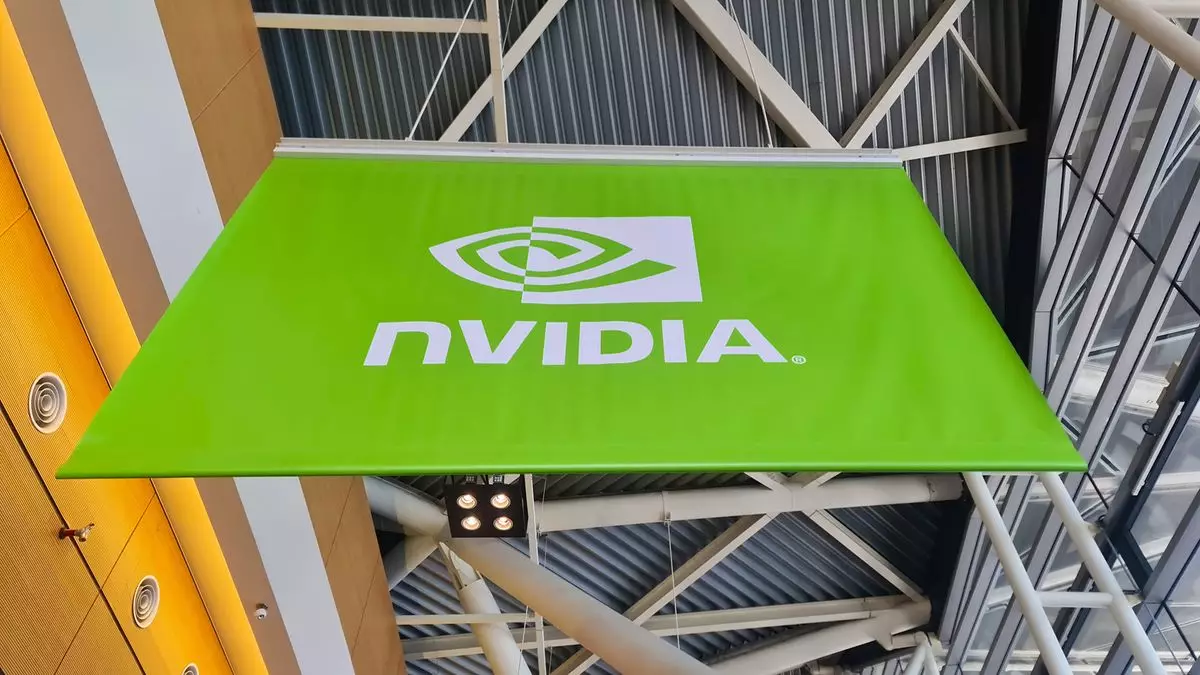In a landscape where technology companies often find themselves embroiled in legal disputes, Nvidia is the latest corporation to face scrutiny in court. With the recent rise of artificial intelligence (AI), we have witnessed a surge in lawsuits alleging misleading practices and deceptive disclosures within the sector. Nvidia, already at the forefront of the AI data center market, has attracted attention not just for its technological advancements but also for its ongoing legal battles. Recently, the US Supreme Court’s decision to allow a pivotal class-action lawsuit against Nvidia to move forward has brought the company’s previous practices into sharper focus.
At the heart of the case is an assertion made by investors that Nvidia misrepresented its financial interests, particularly its revenue dependency on the cryptocurrency market. The lawsuit, initiated in 2018, claims that Nvidia downplayed this critical aspect of its business, in violation of the 1934 Securities Exchange Act. Such allegations are serious, particularly as they revolve around investor trust and transparency—fundamental tenets of any publicly traded company. Initially dismissed by a federal judge, the case saw a revival after intervention from the 9th Circuit Court of Appeals, which ruled that there was sufficient cause for the lawsuit to proceed.
As Nvidia sought to appeal this decision to the Supreme Court, its arguments centered on the provisions established by the 1995 Private Securities Litigation Reform Act. The company contended that investors needed to demonstrate clear evidence of wrongdoing before the case could be pursued—an assertion met with skepticism from Justice Ketanji Brown Jackson. Her observations emphasized the notion that the requisite evidence should emerge organically during the proceedings, rather than stifle the potential for justice before the trial even begins.
When the Supreme Court chose not to hear Nvidia’s appeal, it effectively allowed the lawsuit to proceed without detailing its rationale. This dismissal represents a significant step for the plaintiffs who allege that Nvidia’s actions—specifically its communications about revenue sources—deceived them and ultimately impacted their investments negatively. Investors are now presented with an opportunity to argue their case in court, which adds a different layer of urgency and scrutiny to Nvidia’s public image.
Legal precedents in similar tech cases also suggest that companies might not always come out unscathed from these types of claims. With Nvidia already having paid a $5.5 million settlement to the Securities and Exchange Commission for similar allegations regarding its disclosures, there is a precedent for accountability when it comes to misleading statements in corporate communications.
This latest chapter in Nvidia’s legal journey should serve as a reminder of the broader accountability issues facing technology companies. In a competitive landscape where market capitalization means everything, the pressure can lead corporations to prioritize profits over ethical transparency. Nvidia’s ongoing legal challenges underscore the need for stringent adherence to regulatory standards designed to protect investors.
The question must be raised: What does this mean for other tech giants? Are they similarly vulnerable to scrutiny regarding their financial practices? In the current climate, where AI and technology play an increasingly significant role in global economies, the expectation of transparency has never been more critical. With companies raking in substantial profits, the repercussions of legal settlements might feel trivial compared to their overall market performance. However, long-term reputational damage can have lasting effects that ripple through consumer trust and investor relations.
While Nvidia continues to enjoy its status as a leading player in the tech sector, legal challenges such as this latest lawsuit should inspire a cautious approach within the industry. Vigilance in corporate governance, ethical accountability, and transparent communications could serve as the bedrock for sustainable future growth. For now, as Nvidia prepares for a new legal battle, the outcome could promise not only restitution for investors but also a valuable lesson in corporate responsibility for the entire tech industry.

